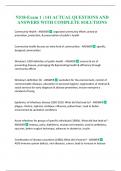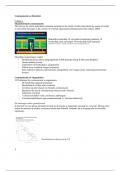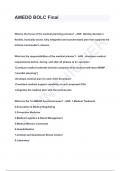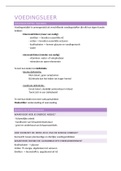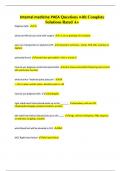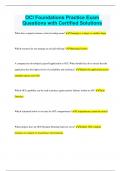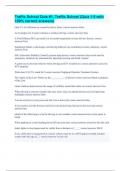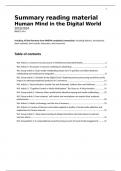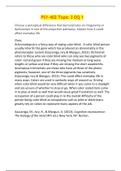Tentamen (uitwerkingen)
NU 518-Exam 1 | 141 ACTUAL QUESTIONS AND ANSWERS WITH COMPLETE SOLUTIONS
- Vak
- Instelling
NU 518-Exam 1 | 141 ACTUAL QUESTIONS AND ANSWERS WITH COMPLETE SOLUTIONS Community Health - ANSWER organized community efforts aimed at promotion, protection, & preservation of public's health Community health focuses on what kind of communities - ANSWER specific, designed communities Winsl...
[Meer zien]
